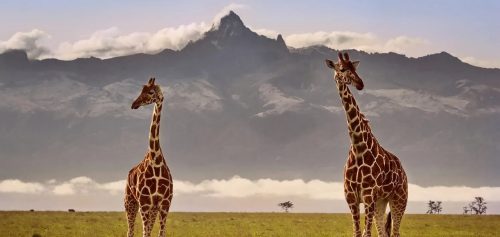
I often look out for Mount Kenya from my home in Nairobi. Although it’s about 200 kilometres to the north, if I look at a certain point on the horizon, usually early in the morning, I can sometimes see the peak of the mountain from the Nairobi plateau. However, as the mountain is mostly covered in cloud, it is rare to see it clearly even from its base. This is no surprise when one learns that it is the second tallest mountain in Africa, rising to 5199 metres.
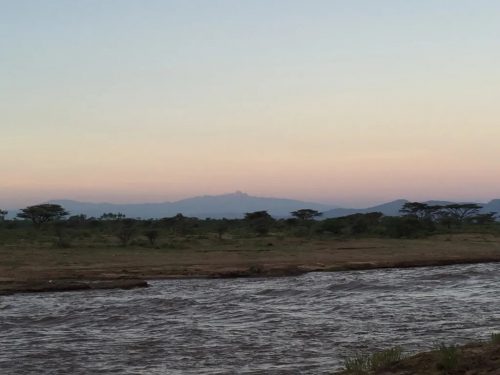
There are a number of reasons why mighty Kilimanjaro, straddling the borders between Kenya and Tanzania, eclipses Mount Kenya. Firstly, is the proximity of Kilimanjaro, the highest mountain in Africa and the highest freestanding mountain in the world. In addition, Kilimanjaro is certainly more popular because it is a trek to Uhuru summit, taking about a week to ascend and descend. Mount Kenya has a beautiful, sharp and rocky peak – Batian Peak – making up the final 700 metres of the mountain. This is a dangerous, technical climb making it much less accessible to the every-day hiker.
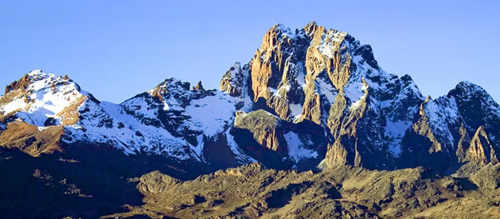
What many may not know is, that to the people of Kenya, their mountain is a sacred and revered symbol. In fact, it is from the mountain that the name of the country originates.
Amongst the many peoples of Kenya, the mountain is particularly important to the Kikuyu (or Gikuyu – as I will call it here, the name being mispronounced by the colonialists). The first president of independent Kenya, Jomo Kenyatta, a Gikuyu, wrote a book, ‘Facing Mount Kenya’ in which he details the cultures and traditions of the tribe. According to tradition, the great god Ngai (meaning ‘the apportioner’ as he split and distributed the nations of the world, giving each a skill) lives at the peak. The Gikuyu believe that Ngai took the first man, named Gikuyu, to the top of the mountain, from where he looked out upon the earth. Ngai pointed to a spot in the middle of the country where mugumo (fig) trees grew bountifully. He told Gikuyu to build his homestead there. Gikuyu travelled there, and found a beautiful woman who became his wife. This is where the Gikuyu tribe began and the reason why they traditionally build their homes with the front door facing towards Mount Kenya.
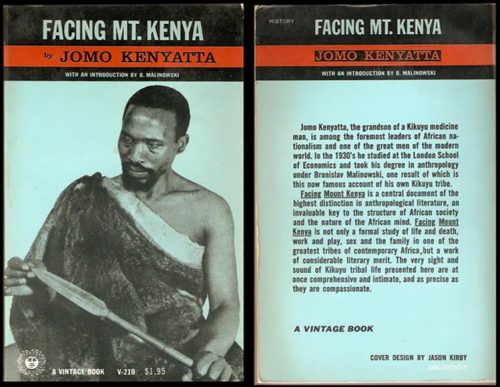
The nomadic Maasai people have a similar legend. They believed that a god called Engai used to live on the earth in harmony with all the cattle (which are of huge importance to the Maasai). However, a nearby volcano erupted (perhaps Mount Kilimanjaro or Mount Meru in the south) and Engai gathered all the cattle and took them into the clouds to save them. However, there was no grass in the sky, so Engai called upon a man called Naiteru-Kop. Engai asked Naiteru-Kop to look after all the cattle and this marked the birth of the Maasai tribe, who believe that cattle are not only food and wealth, but that the tribe has a holy order to gather and protect all cattle in the land. Engai stayed in the clouds, and as the Maasai migrated north into the Laikipia plateau of Kenya, they transferred these stories to a new mountain, Mount Kenya, revered by the neighbouring Gikuyu tribe. When the clouds descend upon it, they believe Engai is there.
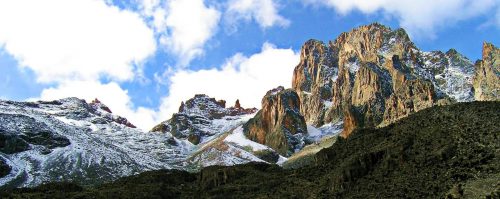
These are the tales I think about as I gaze out, through the smog of the city, to see that sharp peak above the housing developments and construction sites. I hope to have my own story of the mountain later this year, when I hike to the third-highest peak, Lenana – and look out upon the earth, searching for those mugumo trees and cattle in the clouds, and back towards where I am now.
Filed under: East Africa Travel
Subscribe for Weekly Stories
Comments (1):
16 October 2018
Very beautiful, informative and helpful. Thank you.
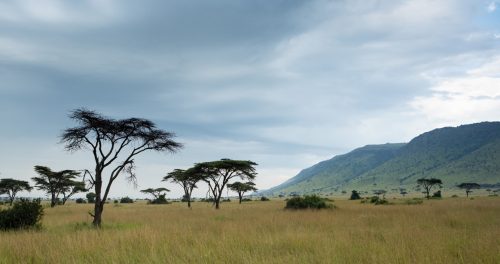
Angama Safari Camp